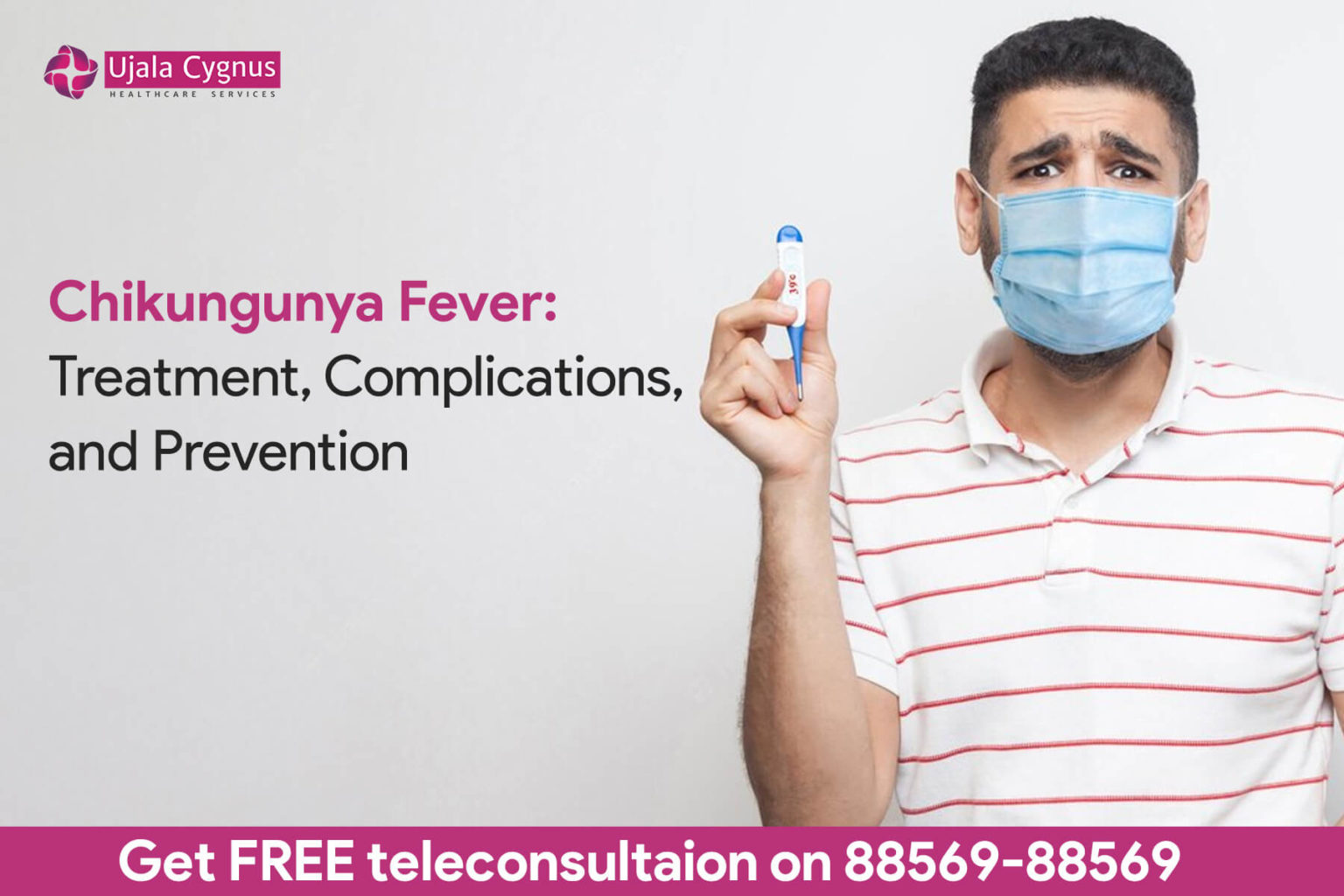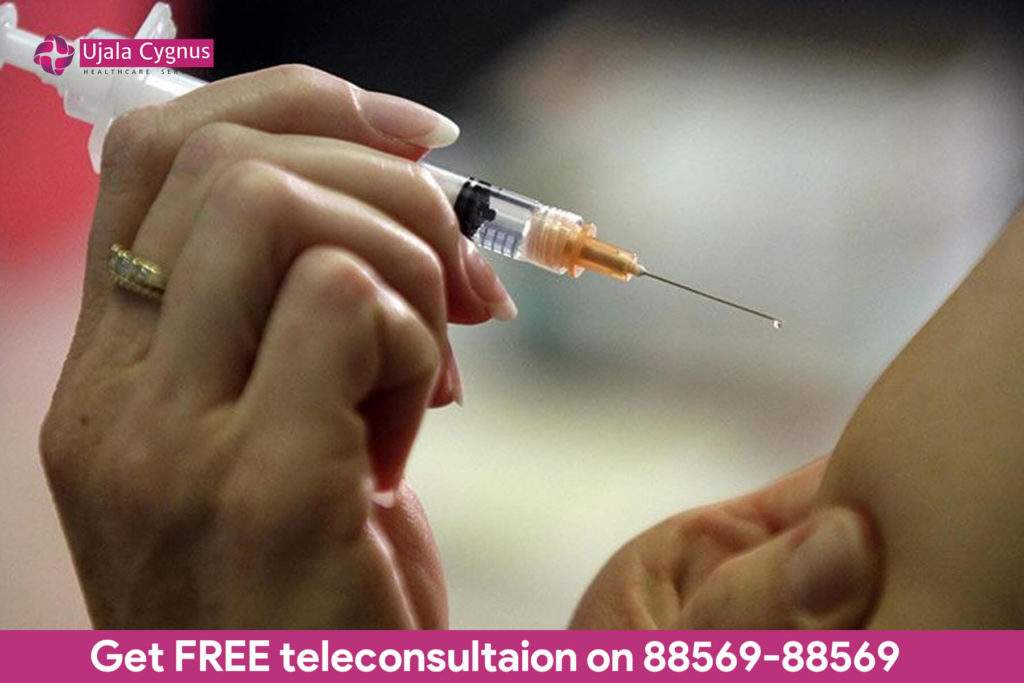Chikungunya Fever: Treatment, Complications, and Prevention

Chikungunya is a recurring illness, and there is no appropriate treatment available for chikungunya.
The doctor may recommend getting enough rest and drinking plenty of water. Moreover, he would prescribe paracetamol to ease pain and fever and other painkillers.
This blog covers all the vital information on chikungunya treatment, complications, and prevention.
Chikungunya Prevention
Before talking about complications and treatment, let’s talk about how you can prevent Chikungunya. As mosquito bite is the most common source of chikungunya transmission, the recommended prevention measures involve avoiding mosquito contact. You can prevent chikungunya by taking the following steps:
- Use DEET (N, N-Diethyl-meta-toluamide) or picaridin as an insect repellent on your skin and clothing.
- Wearing clothes that completely cover the body.
- Staying indoors, especially early in the morning and late in the day.
- Avoiding travel to places where outbreaks are occurring.
- It can be beneficial to use products containing lemon eucalyptus oil or PMD (p-Menthane-3,8-diol).
- Use air conditioning to keep mosquitos out of your room.
- Using insecticide vaporizers and mosquito coils.
- Use a mosquito net.

Vaccine for Chikungunya
No vaccination or treatment is available for chikungunya; however, the sickness is generally short-lived and seldom lethal.
Rather than treating the problem, medication aims to alleviate the symptoms.
A phase 2 clinical testing of a chikungunya vaccine is now being funded by the National Institute of Health (NIH). Rather than inactivated or weakened viruses, the vaccine uses so-called virus-like particles (VLPs).
Immune responses identical to those generated by naturally acquired immunity following viral infection can be stimulated by VLP-based vaccines. VLPs, on the other hand, are not contagious and do not reproduce.
VLP vaccines do not require to be manufactured in high-level biocontainment facilities because whole viruses are not utilized.
Complications of Chikungunya
Management and treatment of chikungunya are essential. If it is ignored, a patient can face complications like:
- Myocarditis or inflammation of the heart muscle
- Neurological imbalances
- Eye disease (Uveitis, Retinitis)
- Hepatitis caused by liver damage
- Neurological disorders (Meningoencephalitis, Guillain-Barré syndrome, myelitis, or cranial nerve palsies)
- Bleeding
- Bullous lesions
- Seizures
- Nephritis (Inflammation of the kidneys)

Treatment of Chikungunya
The virus is rarely severe; its symptoms can be painful and disabling. Most people recover from the fever within a week, while joint pain might last for months. Twenty percent of patients report persistent joint discomfort after a year.
You can read our last blog if you wish to know about chikungunya’s causes and symptoms.
Chikungunya is not treated with specific medications; instead, doctors recommend rest and plenty of water. Fever and joint pain can be relieved with over-the-counter medications.
Some of these chikungunya medicines include:
- Naproxen
- Ibuprofen
- Acetaminophen
It is always best to take these medicines after a doctor’s consultation. You can talk to our experts and get a prescription for free at 88569-88569.
Conclusion
Chikungunya does not have a specific treatment, such as antivirals or antibiotics. In most cases, paracetamol is used to treat the symptoms, and patients are asked to drink plenty of fluids to stay hydrated.
If left untreated, Chikungunya can cause several complications, including fever, weakness, and severe joint pain. Some rare problems like ophthalmic, neurological, and cardiac problems may occur in some people.
In other cases, the virus does not get cleared by the body, causing long-term pain and damage to joints, leading to deformity.
If you notice any complications, consult our doctor for free at 88569-88569.
Read this blog also for Chikungunya: Everything You Need to Know
Frequently Asked Question (FAQs)
1. What are chikungunya’s long-term effects?
Polyarthralgia with symmetrical joint involvement was seen in the majority of patients. Atypical signs, such as severe depression with suicide attempts, extreme weight loss, and severe hair loss, were identified in some patients with prolonged arthralgia. In most cases, patients still had severe joint pain.
2. What is the best chikungunya treatment?
There is no precise medication to cure chikungunya; therefore, doctors advise proper rest and plenty of liquids. Over-the-counter medications will help relieve fever and joint pain.
3. Which tablet is used for chikungunya fever?
Over-the-counter (OTC) treatments to cure chikungunya pain and fever include Nonsteroidal anti-inflammatory drugs (NSAIDs), such as ibuprofen, naproxen, and aspirin.
4. What is the best way to treat chikungunya joint pain?
To relieve chronic joint pain, indulge in low-impact aerobic exercise that includes stretching and slow motions. A light massage with coconut oil may reduce joint pain. Place an ice pack wrapped in a small hand towel over the joint for a few minutes to relieve inflammation and pain.
5. Is it normal to take a bath while suffering from chikungunya?
Bathing in hot water with Epsom salt and neem leaves can also help with immunity and pain relief. Garlic paste or clove oil mixed with pepper can help relieve inflammation and joint pain, particularly around the knees.
Ujala Cygnus Healthcare Group has 16 hospitals. Kanpur, Rewari, Kashipur, Varanasi, Sonepat, Panipat, Kurukshetra, Nangloi in Delhi, Rama Vihar in Delhi, Kaithal, Bahadurgarh, Karnal, Moradabad, Haldwani, and Agra.
You can book an appointment at your nearest Ujala Cygnus Hospital for any health issue treatment. For any query, you can give a missed call on 88569-88569 and get a free consultation over the phone.
